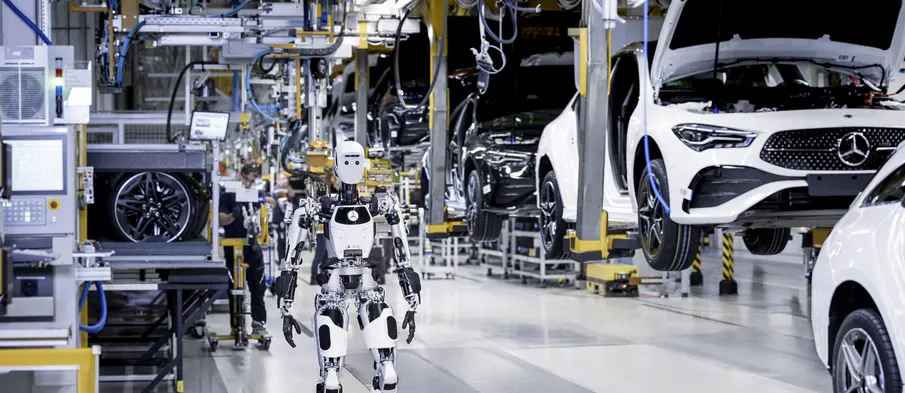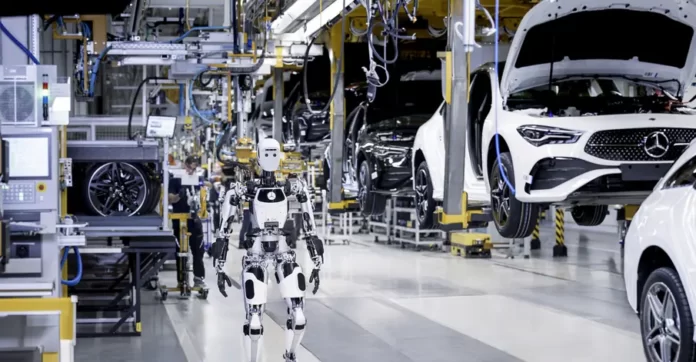
Mercedes-Benz is seeking assistance from robotic technology.
The esteemed car manufacturer has initiated a trial with Apptronik, a company based in Austin, Texas, to integrate humanoid robots into its production lines. This collaboration is seen by Mercedes as an opportunity to explore how these robots can support human employees and mitigate labor shortages during production processes.
Within this pilot scheme, Apptronik’s humanoid robots will take on tasks characterized as “low skill, physically demanding, and manual,” as per a joint statement. Among these robots is Apollo, a humanoid robot standing at five feet eight inches tall and weighing 160 pounds, capable of lifting up to 55 pounds. Resembling a more approachable version of Tesla’s Optimus, Apollo was engineered to function safely and efficiently alongside human workers in industrial environments. Although Mercedes and Apptronik are still determining the specific tasks for the robots, initial uses will likely involve part delivery and inspection. The exact number of robots to be deployed remains undecided, but the Financial Times has reported (via The Verge) that trials are already underway at Mercedes’s plant in Hungary. This country, a crucial automotive manufacturing center, has faced workforce shortages recently due to migration towards Western Europe.
“This is a new frontier and we want to understand the potential both for robotics and automotive manufacturing to fill labor gaps in areas such as low-skill, repetitive and physically demanding work and to free up our highly skilled team members on the line to build the world’s most desirable cars.” Jörg Burzer, who oversees production at Mercedes, said in a statement.
Mercedes is not alone in its venture into humanoid robotics; BMW had previously announced a similar collaboration with Figure, a California-based company, to assess the performance of its robots in manufacturing. Figure’s 01 robot is being utilized in BMW’s manufacturing facilities in Spartanburg, South Carolina, USA. Like Mercedes and Apptronik, BMW and Figure are in the process of identifying the most effective roles for the robots, aiming to automate tasks that are “challenging, hazardous, or monotonous.”





